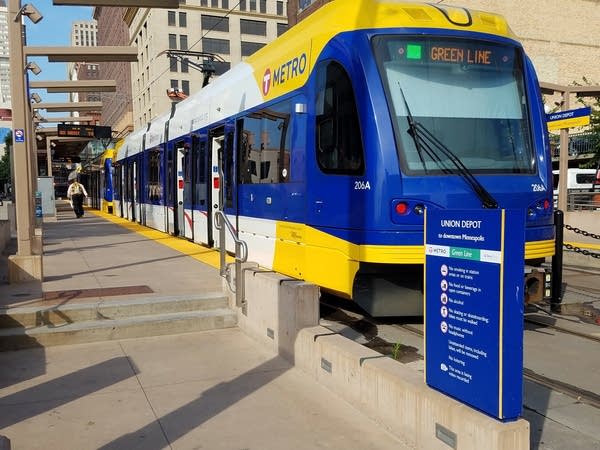Metro Transit workers vote to authorize strike

Go Deeper.
Create an account or log in to save stories.
Like this?
Thanks for liking this story! We have added it to a list of your favorite stories.
Updated: 11:30 a.m.
Hundreds of members of the union that represents Metro Transit workers in the Twin Cities have authorized a strike as contract negotiations continue with the agency.
Talks between Metro Transit and Amalgamated Transit Union Local 1005 have been underway for more than a month. They started before the previous contract expired on Aug. 1.
ATU Local 1005 said 94 percent of members voted in favor of authorizing a strike in balloting held Sunday and Monday.
The vote doesn’t mean there will be a work stoppage yet — but it does empower the union’s leaders to call a strike if they deem it necessary.
Turn Up Your Support
MPR News helps you turn down the noise and build shared understanding. Turn up your support for this public resource and keep trusted journalism accessible to all.
In a statement Tuesday, Metro Transit said it is “not anticipating any immediate service impacts at this time. Our employees are integral to serving those who rely on transit and we look forward to reaching an agreement.”
Local 1005 president Ryan Timlin told MPR News that staffing issues have been a major problem for the transit agency, and union members say that Metro Transit simply needs to pay better wages to fill the gaps.
“They need to increase the wages to make these jobs enticing. There’s a lot of frustration that they’re not doing that — that’s the roadblock for Metro Transit’s hiring right now,” he said. “We’re still way short on operators, but we’re short in every position beyond operators.”
In a newsletter issued ahead of the strike authorization vote, union leaders also said they’re pushing for a cost-of-living adjustment for workers’ pay, and “real solutions” to driver and operator safety concerns.
The union and Metro Transit renegotiate contracts every two or three years. The union authorized a strike during the last round of contract negotiations in 2020, but the union hasn't had a work stoppage since 2004.


